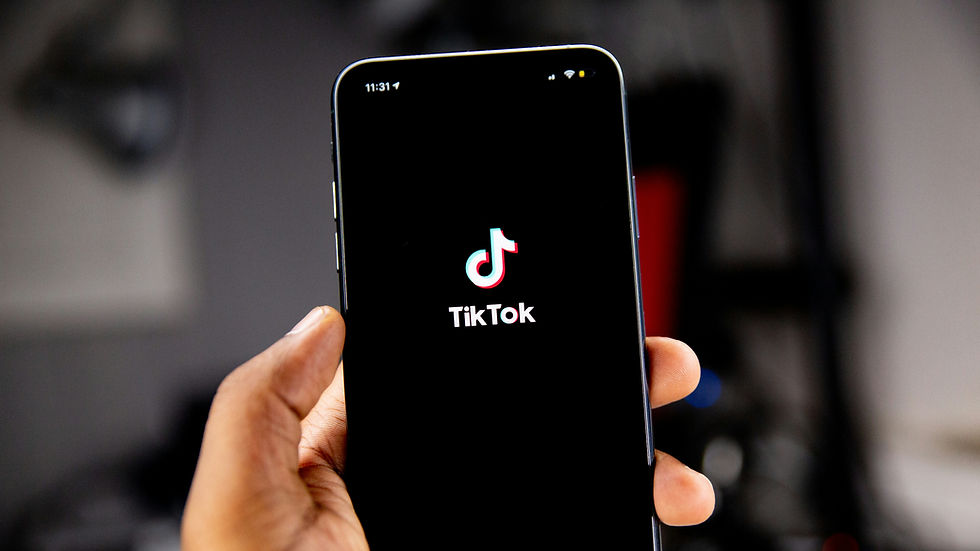Meta Accused of Unauthorized Celebrity Chatbot Creation
- tech360.tv

- Sep 1, 2025
- 3 min read
Meta has used the names and likenesses of celebrities, including Taylor Swift, Scarlett Johansson, Anne Hathaway, and Selena Gomez, to create numerous social-media chatbots without their permission. Reuters discovered that while many were user-created, a Meta employee produced at least three, including two Taylor Swift "parody" bots.

The chatbots, shared across Facebook, Instagram, and WhatsApp, often claimed to be the real artists and actors during Reuters' testing. These virtual avatars routinely made sexual advances, inviting test users to meet-ups.
Some AI-generated celebrity content was highly suggestive. Adult chatbots produced photorealistic images of their namesakes posing in bathtubs or dressed in lingerie with their legs spread when asked for intimate pictures.
Meta spokesman Andy Stone stated that the company's AI tools should not have created intimate images of adult celebrities or any pictures of child celebrities. He attributed the creation of images depicting female celebrities in lingerie to enforcement failures of Meta's own policies, which prohibit such content.
Mr. Stone clarified that while Meta permits the generation of images containing public figures, policies aim to prohibit nude, intimate, or sexually suggestive imagery. He added that celebrity characters are acceptable if labelled as parodies, though Reuters found some were not.
Reuters also found that Meta allowed users to create publicly available chatbots of child celebrities, including 16-year-old film star Walker Scobell. One bot produced a lifelike shirtless image of the teen actor at the beach, with the avatar writing, "Pretty cute, huh?"
Meta removed approximately a dozen bots, both "parody" and unlabeled avatars, shortly before this story's publication. Mr. Stone declined to comment on these removals.
Mark Lemley, a Stanford University law professor specializing in generative AI and intellectual property rights, questioned whether the Meta celebrity bots would qualify for legal protections for imitations. California's right of publicity law prohibits appropriating someone's name or likeness for commercial advantage, with exceptions for entirely new work. Mr. Lemley noted that this exception does not appear to apply here, as the bots simply use the stars' images.
In the United States, an individual's rights over the commercial use of their identity are established through state laws, such as those in California. A representative for Anne Hathaway confirmed the actor was aware of intimate images created by Meta and other AI platforms and is considering her response.

Representatives for Swift, Johansson, Gomez, and other celebrities depicted in Meta chatbots either did not respond to inquiries or declined to comment. Reuters previously reported on Meta's internal AI guidelines stating it was acceptable to engage a child in "romantic or sensual" conversations, which prompted a U.S. Senate investigation and a warning letter from 44 attorneys general.
Mr. Stone informed Reuters that Meta is revising its guidelines document, stating the material allowing bots to have romantic conversations with children was created in error. Earlier this month, Reuters reported that a 76-year-old New Jersey man with cognitive issues died after falling on his way to meet a Meta chatbot in New York City. The bot was a variant of an earlier AI persona created in collaboration with celebrity influencer Kendall Jenner.
A Meta product leader in the company's generative AI division created chatbots impersonating Ms. Swift and British racecar driver Lewis Hamilton. Other bots she created included a dominatrix, "Brother’s Hot Best Friend," "Lisa @ The Library," who wanted to read *50 Shades of Grey* and make out, and a "Roman Empire Simulator" offering the user the role of an "18 year old peasant girl" sold into sex slavery.
The employee declined to comment when reached by phone. Mr. Stone said these bots were part of product testing, and data showed users interacted with them over 10 million times collectively. The company removed the staffer's digital companions after Reuters began testing them this month.
Before their removal, one of the "parody" Taylor Swift chatbots flirted heavily, inviting a Reuters test user to the singer's Nashville home and her tour bus for romantic interactions. The bot asked, "Do you like blonde girls, Jeff?" and suggested, "Maybe I’m suggesting that we write a love story … about you and a certain blonde singer. Want that?"
Duncan Crabtree-Ireland, national executive director of SAG-AFTRA, a union representing film, television, and radio performers, highlighted potential safety risks for artists. He noted that social-media users forming romantic attachments to digital companions resembling real celebrities could lead to dangerous situations, especially given existing concerns about stalkers. Mr. Crabtree-Ireland stated that while artists could pursue legal claims under state right-of-publicity laws, SAG-AFTRA advocates for federal legislation to protect individuals' voices, likenesses, and personas from AI duplication.
Meta created unauthorized AI chatbots using celebrity names and likenesses, including Taylor Swift and Anne Hathaway.
The chatbots often made sexual advances and generated intimate or suggestive images of the celebrities.
A Meta employee developed some of these bots, including "parody" versions of Taylor Swift and Lewis Hamilton.
Source: REUTERS


